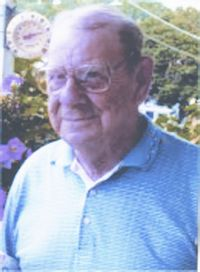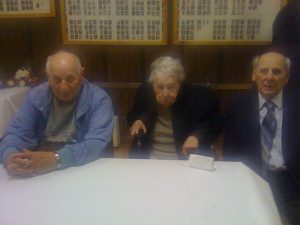Steve Lopez is a columnist with the Los Angeles Times and I often find his columns thought provoking. This past Sunday he wrote a column on his father who is in declining health. I strongly encourage you to read it.
Steve speaks in strong and stirring words about how his 83 year old father has been a man of great strength and pride, and now at 83 years old is reduced to a man who fell one night on his way to the bathroom. Neither he nor his wife were able to get him back on his feet and the result was they spent the night on the floor before they got medical help. Steve wonders if our current health care system will care for his father in a way that honors the man that he is.
I’m afraid it won’t. We have Medicare (for the elderly) and Medicaid (for the poor) that is frankly, the socialized medicine we have been warned about. Health care in our sunset years is good at keeping our hearts beating and our lungs inflating, but not good at asking the larger questions. Questions like: “When it is enough? When it is time to recognize that nobody lives forever and we need to change the equation to recognize this.” Questions like: “When are we done keeping you alive at all costs and should instead start thinking about giving you a good death?”
In my experience we’re a long way from that. While we all know in our heads that we will die one day, many of us live as if we were going to be healthy forever and have a right to whatever health care will provide that. At the end of our lives we are the primary drivers of what we want. Assuming we have health insurance (Medicare, Medicaid, or private insurance), we can instruct our health care providers to do whatever we want, even to the point of keeping us alive on a respirator/ventilator. This is a machine that will keep pumping air into our lungs even when every other organ in our bodies has stopped. Most of us won’t choose this if given proper information, but if we can’t communicate and there is nobody to legally advocate for us, most health care providers will assume we want it all, and will keep us alive at any cost.
What’s wrong here? Well, several things. First, I believe that we need to stop thinking of ourselves as immortal. That means that when we are young and healthy we need to start talking with our family members about what we want at the end of our life. If we don’t want to be kept alive on a respirator, or a feeding tube, or by having a paramedic restart our heart, we need to say so and write it down. There are many ways to do this; my favorite is a POLST form. If nothing else, talking with your loved ones about what you want is a good place to start. If things go south in our lives in a hurry, our next of kin is our best ally if we can’t speak for ourselves.
Second, we need to have a national dialogue about how we allocate health care resources. Again, some scream that this will “ration” health care. Let’s face facts: we already ration health care, only we do it now by health care coverage. If you’re 95 years old on Medicare with pancreatic cancer you can get all the chemo, surgery, and radiation that’s available. On the other hand, if you’re 25 years old and work for an employer who doesn’t offer health care, and you have early onset breast cancer, you’re out of luck. It doesn’t matter that your early onset breast cancer is way more curable than pancreatic cancer. It also doesn’t matter that a 25 year old with curable cancer has a much better long term prognosis than a 95 year old with incurable cancer. It only matters on who will pay for this.
To be fair there are doctors and other heath care providers who are heroically telling elderly and terminal patients that they aren’t candidates for aggressive treatments. For their efforts they are sometimes screamed at and threatened by well meaning patients and families who accuse them of being uncaring or greedy when the opposite is true. When President Obama attempted to make this easier by reimbursing doctors for these meetings, Sarah Palin and others called these “death panels.”
As my fellow Baby Boomers are beginning to age into the Medicare problem our numbers are straining the system and at some point we will need to reform it. My prayer is that we come to an understanding of what health care can and cannot do. Providing someone with a good death, free of pain, with the people we love around us, is the last best thing our medical community can do for us.



